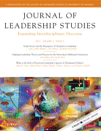top of page
Reports

Our research team gathered and read these reports along with multiple articles and books. From our resources we put together a list of common themes that we found to assess who Millennials actually are, what attracts Millennials to a workplace, and what would keep them there. Our themes are as follows: definition, technology, social values, and leadership styles.
Millennials at Work: Reshaping the Workplace
PWC (2011)
Millennials have a different set of values and abilities in comparison to other generations. With the use of technology this generation has the ability to communicate across borders and establish connections with many different companies who are looking to hire. This brings a new set of challenges to recruiting and attracting Millennials. Not having been offset by the global recession, this study revealed that 67% of Millennials felt that their futures would be better than the previous generation. This study also found that Millennials prefer to accept a job that offers self-development and career growth over higher salaries and cash bonuses, and 32% would take a pay cut for jobs that they felt aligned with their values. The reality is that soon a quarter of the workforce will be made up of Millennials and this will only continue to increase. The responsibility of HR will soon be to bring the multiple generations together as they work to survive in a changing work environment.
Millennials: Finding Opportunity in Federal Services: Results from the Federal Employee Viewpoint Survey (FEVS)
United States Office of Personnel Management (2014)
The FEVS report is a sample of 400,000 surveys that were distributed to Federal employees. This report identified Millennials as the generation being born between 1980 and 2000. The participants yielded an 11% response rate from Millennials. This survey’s key finding indicated that 1 in 3 Millennials said they want to work for organizations that support creativity and innovation. The survey also found that 78% of Millennials preferred teleworking, 62% would recommend their organizations as good places to work, and 2/3 were satisfied with their work. Millennials also indicated that 66% of employers supported employee development, and 77% of supervisors listen to what they have to say.
Millennials Actually like Government Work, and Other Myths about Them
Deloitte University Press (2014)
According to the Labor Statistics millenials make up 24.5% of the workforce. Focused on debunking myths of millennials committed to public service this report seeks to understand the challenges this generation faces in the workplace and how strategies and approaches can provide insight to talent recruitment and personnel management. Specifically, the focus of this article is assesses how state and local governments can better recruit and retain the millennial generation. The idea that millennials have higher turnover rates is debunked here by turning to datasets from 2006 in a comparative analysis of gen X and millennials. The true indicator of turnover is within the age group of 25-34. This research reviews data from the Federal Employee Engagement Survey from the Office of Personnel Management.
Adapting Leadership Theory and Practice for the Networked, Millennial Generation
Janis Bragan and Fernando Mora (2012)
Millennials and their position in the workforce has shifted leadership styles in the workplace. This shift has been driven as the millennial generation differs from other generations due to the the swift technological advances within their lifetimes. By their 20's they have already or will have spent 30,000 hours on the web. Thus are heavily connected to the force of communication that technology provides. Millennials are the catalyst for the incoming generations, changing the workforce with their rapid communication skills and altruism leadership styles.
bottom of page



